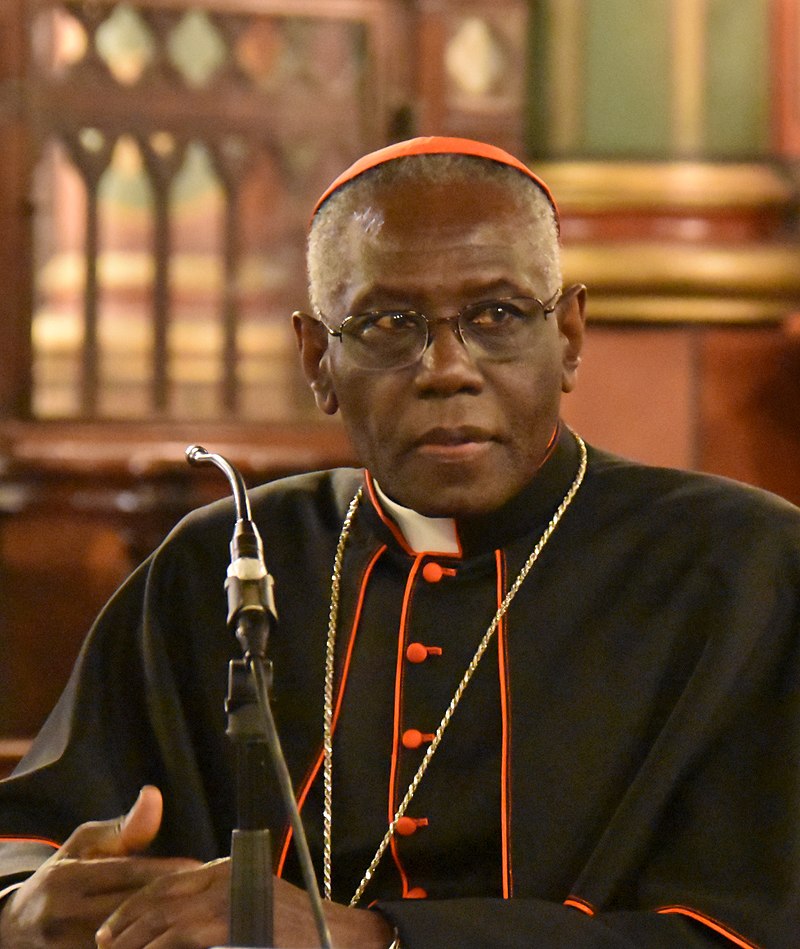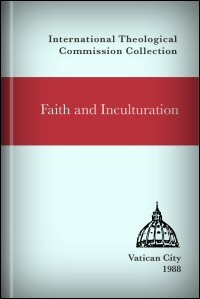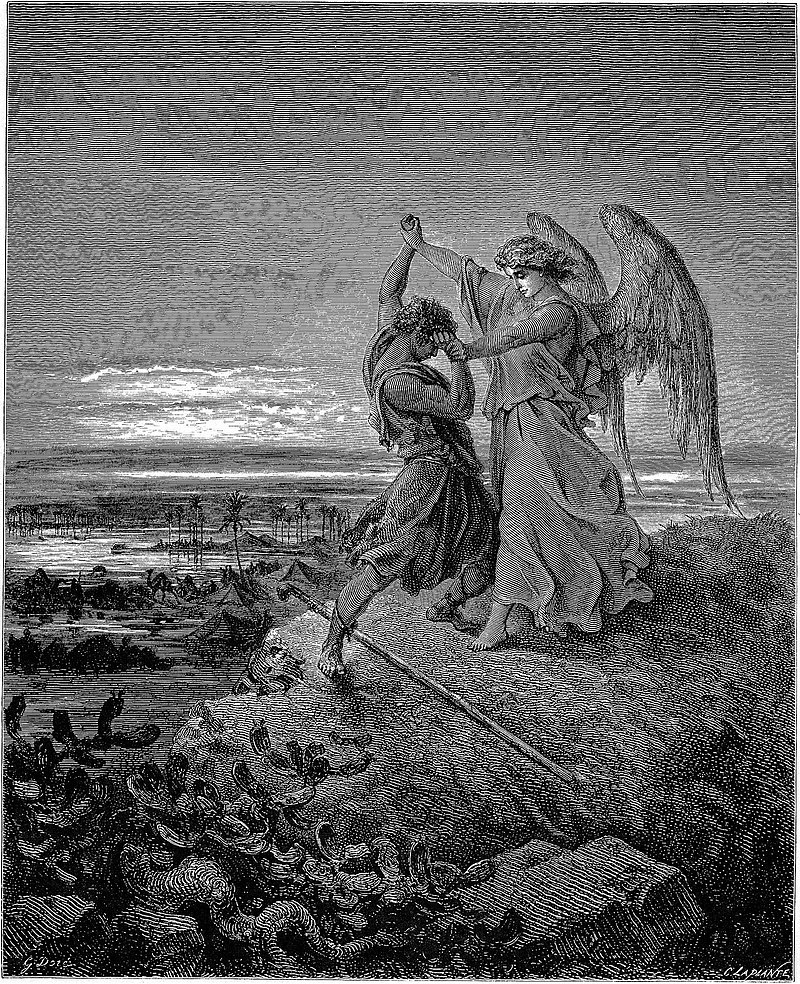Catholics are called by Christ to preach the Gospel to the whole creation, inculturation is an important aspect of the mission to baptize every culture in every nation.

Figure 1: “It is better to help people flourish in their culture than to encourage them to come to a Europe in full decadence” (Cdl. Robert Sarah)
Background

Pope St. Paul VI created the International Theological Commission (ITC) in 1969 to explore theological issues. While the ITC itself is not part of the Church’s Magisterium, it does act in an advisory capacity. In 1988 they published a document entitled “Faith and Inculturation”1 and addressed the following items of interest:
- Inculturation in Salvation History
- God’s Covenant with Israel
- Jesus Christ the Lord and Savior of the World
- The Holy Spirit and the Apostolic Church
- Current Issues Pertaining to Inculturation
- Expressions of Popular Piety
- Christian Faith and Modernity
I will explore this document and provide commentary on how it relates to our efforts to evangelize the world.
What is Inculturation?
Culture is a collective effort of societies and nations, it works as “an effort toward a deeper humanity.” Humans as social creatures interact, build bonds, and orient themselves collectively towards goals and higher goods. Christians are called to defend the right to culture and to promote the harmonization of a culture with Christianity, conforming to Christian ideals while also not erasing distinctive cultural artifacts. Quoting the synod commemorating the 20th anniversary of the Second Vatican Council, the ITC speaks of inculturation as “the intimate transformation of authentic cultural values through their integration in Christianity in the various human cultures.”
It is important to understand that culture can only be adopted by Christians in relation to “whatever good they possess” and any errors in any given culture must be rejected. Attitudes and customs are often required to be amended to be in accord with the Gospel: “Cultures must also be purified and restored in Christ.”
Nature, Culture, and Grace
Men have a fallen nature, fallible liberty, and are often subject to their base passions. Culture when used in a positive sense does not serve to neglect the reality that cultures “can perpetuate and favor the choice of pride and selfishness.” In our evaluation of culture this fallible reality cannot be ignored as will be shown later in the section on issues of modernity. Limitations may be necessary to ensure a culture is defined by love of God rather than sin.
Man is by nature a religious creature, all truly great cultures therefore have a religious dimension at their foundation. Christianity is compatible with all cultures “insofar as they conform to right reason and good will.” Grace is not contrary to nature, instead it heals the wounds of sin and elevates nature towards the Divine Creator. On a societal scale grace can heal an entire culture, symbolically baptizing it in Christ. Keeping this in mind, a fuller definition of inculturation can be offered:
The process of inculturation may be defined as the Church’s efforts to make the message of Christ penetrate a given sociocultural milieu, calling on the latter to grow according to all its particular values, as long as these are compatible with the Gospel.
Inculturation in Salvation History: Ancient Israel

Figure 2: Jacob wrestling with the angel
Ancient Israel developed with God’s guidance while surrounded by various cultures. Certain ancient institutions and customs were not particular to Israel alone, they were held by other groups who lived nearby. Encountering God through his covenant permitted Israel’s development and expansion of cultural elements, “baptizing” them and consequently rejecting the “inhuman practices” from these foreign cultures.
This inculturation, the baptizing of virtuous practices and the rejection of the inhumane, can be best seen in Christ’s new testament which called every nation. St. Paul in his epistle to the Romans teaches that the Gentiles (nations) have been grafted on to Israel, this fulfills God’s original plan as explained in early Genesis. The Gentiles are not called to become Jews, maintaining Jewish customs and practices, but rather they are called to worship Christ and be baptized, not destroying themselves but fulfilling themselves in Christ.
Inculturation in Salvation History: Jesus Christ and the Church

Figure 3: The Divine Mercy of Jesus Christ
Transcendence of Christ
One conviction dominates the preaching of Jesus: In Jesus, in his word and in his person, God perfects the gifts he has already made to Israel and to all nations, by transcending them. Jesus is the sovereign light and true wisdom for all nations and all cultures.
Jesus fearlessly challenges and corrects anything which runs contrary to His Divine Law. No evil could be practiced or promoted by the God-man by nature of His perfection. In this way, Jesus is perfectly obedient to God the Father. This obedience of Jesus towards God the Father demonstrates not only their mutual love but also God’s love for humanity. This is a transcendent love, overflowing and infinite, on offer to us through grace.
Through Christ’s sacrifice on the cross, God’s original plan for creation, which had been tainted by original sin, was restored and glorified as evidenced by the resurrection. God became man, fulfilling the Old Covenant, in a specific cultural environment, but, as indicated by the cross, we should know that he is not limited by this cultural environment. There is “nothing impoverished about the incarnation.” Every utterance of the prophets were not mere cultural expressions or stories, they were a “prelude to the subsistence Word which is the Son of God.” History prepared, prefigured, and announced the coming of the Lord, all was according to His plan and not limited by the world.
Christ does not only affect us as individuals, he transcends the individual, Jesus also affects the creation through the diversity of cultures. He did not come to destroy different cultures, obliterating them, He came to unite them, binding them together as members of the transcendent society of the Church:
She [the Church] wishes to animate from the inside, protect, free from the error and sin with which we have corrupted them these resources of truth and love which God has placed… in his creation.
Church and Holy Spirit
On Pentecost day, the breaking in of the Holy Spirit inaugurates the relation of the Christian faith and culture as fulfillment in flower: The promise of salvation fulfilled by the risen Christ filled the hearts of believers by the outpouring of the Holy Spirit himself. “The marvels of God” will from now on be “preached” to all men of every language and culture. While humanity was living under the sign of the division of Babel, the gift of the Holy Spirit was offered to it as the transcendent and now so human grace of the symphony of hearts. The divine unification recreated a new humanity among people, penetrating without destroying the sign of their division: languages.
Division of languages is overcome in the Church through the varied gifts of the Holy Spirit. The Church guided by the Holy Spirit can overcome division, division can no longer be an excuse since all nations are called to communion with Christ and His Church. Faith in Christ does not require obliterating one’s culture, it requires elevating that culture in response to God’s condescension, in response to baptism.
Issues Pertaining to Inculturation
Our mission to make all cultures subservient to Christ is not devoid of issues. Popular piety allows cultures to engage in devotion to God and the saints, but there are limits. The ITC document notes that “the limits of popular piety have often been condemned.” Excesses have arisen historically and will undoubtedly continue to present themselves and will in turn need to be suppressed, “The taking into account of these dangers invites us to practice an intelligent catechesis, won thanks to the merits of an authentic popular piety and at the same time duly shrewd.”
Because the Gospel transcends all cultures and the Gospel must come first it is utmost importance that errors are not allowed to creep in and corrupt the message. Religious syncretism in all its forms must be vehemently opposed. The ITC document acknowledges that along with the industrial revolution came a cultural revolution. Industrialization provoked great disorder without the possibility of legitimate integration with the faith:
The emancipation of communities from a sense of belonging has isolated man in the crowd. The new means of communication destroy to as great an extent as they create. Science, by means of the technical creations which are its fruit, appears simultaneously to be creator and destroyer. In addition some despair of modernity and speak of a new barbarism.
These issues ushered in by modernity cannot be ignored and must be addressed.